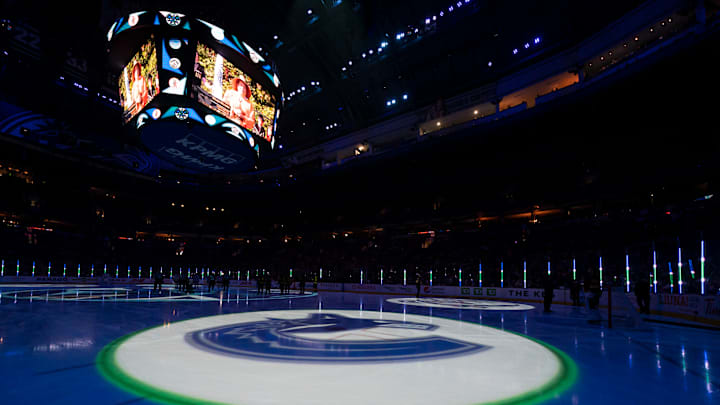Over the past decade, the Vancouver Canucks have seen flashes of potential but have struggled to turn those into sustained success. So, where does the franchise stand in 2024? Are they still stuck in no man’s land, or is this the year they finally chart a clear path forward?
The Core: A Future Built Around Stars
The Canucks boast a solid core that should, in theory, form the backbone of a competitive team. Players like Elias Pettersson, Quinn Hughes, and Thatcher Demko are already well-established as top talents. Pettersson, now under a long-term deal, continues to be the team’s offensive engine, while Hughes, as captain, is steadily growing into his leadership role. Demko remains a reliable presence in net, crucial for a team that still struggles defensively at times.
This core, however, can only take the team so far without the right support. Vancouver has relied heavily on Pettersson and Hughes to carry the load, and while both have proven themselves as elite talents, the lack of depth around them has been an ongoing concern.
Veteran Influence: Stability or Stagnation?
When it comes to the veteran presence, there’s a fine line between valuable experience and stagnation. J.T. Miller continues to play a key role, but there’s no denying that at 31, he’s entering the later stages of his prime. His production has remained solid, but the Canucks need to be cautious about how long they can rely on him as a top contributor.
Brock Boeser is another key piece who has yet to fully live up to the early expectations placed on him. Injuries and inconsistency have plagued Boeser in recent years, and while he’s still a threat on the power play, the Canucks may face tough decisions about his future if he doesn’t rediscover his top form.
On the blue line, the team is still working to find the right balance around Hughes. Filip Hronek, acquired in a bold trade in 2023, has helped stabilize the defense, but questions remain about the overall depth on the back end.
The Rick Tocchet Era: Progress or More of the Same?
Since Rick Tocchet took over as head coach, there has been a noticeable shift in how the Canucks approach the game. Tocchet’s emphasis on structure and defensive accountability has brought more consistency, particularly in areas like the penalty kill, which was a major issue last season.
However, the team’s overall results have still been inconsistent. Some nights, they look like a playoff contender, and on others, they struggle against weaker opponents (the first two games this season just prove my point). Tocchet’s challenge will be to find a way to get the most out of a roster that has both undeniable talent and significant holes.
Management's Approach: Contend or Rebuild?
Perhaps the biggest question for the Canucks in 2024 is one of direction. General Manager Patrik Allvin and President of Hockey Operations Jim Rutherford have spoken about building for long-term success, but their moves don’t always align with a clear rebuild. Trades for players like Hronek suggest the Canucks are trying to win now, but at the same time, they’ve held onto draft picks and younger players, signalling that they’re not willing to go all-in on a playoff push just yet.
This indecisiveness could keep the Canucks stuck in the dreaded middle of the pack—not bad enough to get a top draft pick, but not good enough to be a serious playoff contender. For the team to truly break out of this cycle, management needs to commit to a clear direction, whether that’s pushing for immediate success or embracing a longer rebuild.
Fan Patience: How Much Longer Can It Last?
Canucks fans have been through a lot over the past decade, from the heartbreak of the 2011 Stanley Cup Final to the false dawns of recent seasons. The 2020 bubble playoff run raised hopes that a new era of success was on the horizon, but since then, inconsistency has set in once again. As the 2024-25 season progresses, the patience of even the most loyal fans is being tested.
If the Canucks continue to hover around the playoff bubble without a clear identity, fans may start to demand more drastic changes. Whether that’s a full-scale rebuild or a commitment to adding more veteran talent for a playoff push, the franchise needs to make decisions that give fans hope for the future.
Time to Choose a Path
In the end, the Canucks’ identity crisis boils down to one thing: they need to pick a direction. The team has the talent to be competitive, but without more consistent support and a clearer sense of purpose, they risk continuing to drift in the middle of the standings. The next few months will be critical in determining whether Vancouver is truly ready to compete or if it’s time to embrace a more patient, long-term approach.
One thing is certain—Canucks fans are ready for answers. Whether it’s through building around their young core or making bold moves to contend, the time to choose is now.
